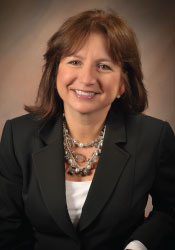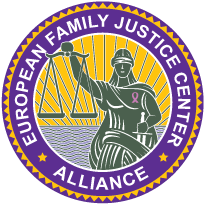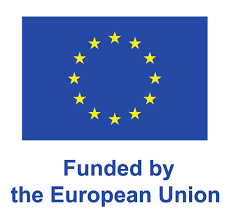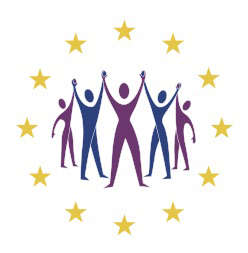Family Justice Centers Europe: Working Together to Address a Worldwide Problem
By Gael Strack, Esq. I just returned to San Diego, weary but enthused, from Poland where I met with our friends starting Family Justice Centers across Europe. I am inspired by the teams from five countries that are developing Family Justice Centers in six locations. The trip was worth every hour of travel, delayed flights, and forgotten sleep. Once there, you are instantly energized by the moment, the historical significance of the meetings, and always, the people. You immediately realize you are meeting with sisters, brothers, and cousins from around the world who share the same passion and vision of the future.
I just returned to San Diego, weary but enthused, from Poland where I met with our friends starting Family Justice Centers across Europe. I am inspired by the teams from five countries that are developing Family Justice Centers in six locations. The trip was worth every hour of travel, delayed flights, and forgotten sleep. Once there, you are instantly energized by the moment, the historical significance of the meetings, and always, the people. You immediately realize you are meeting with sisters, brothers, and cousins from around the world who share the same passion and vision of the future.
It was refreshing to see the many men involved in this initiative. Indeed, the initiative is lead by two men: Bert Groen (Movisie) and Anthony Polychronakis (City of Rotterdam) from Holland. In many ways, it is the President’s Family Justice Center Initiative all over again – where 15 communities were selected by the Office on the Violence Against Women to participate in the President’s Family Justice Center Initiative. But now I was in Poland. An international conversation is taking place about the co-location model.
The Family Justice Center Europe initiative is comprised of teams from Holland, Poland, Belguim, Germany and Italy. They are THE top movers, shakers, dreamers, and doers for their countries. They speak different languages but, thankfully for me, use English when together. They have the same tremendous ingenuity, energy, and determination as leadership teams from the US. Some countries have more challenges than others, but you know they will all be successful in developing their own model of co-location within two years or less.
While painful at times, traveling across the world opens your eyes to the richness of cultures, the commonality of challenges and the shared desire to make things better. Traveling informs your thinking, widens your perspectives and provides an opportunity to meet and learn from inspirational leaders. When we open our hearts and minds to others, listen and discuss, we always come away with better ideas. We are all empowered.
In our meeting in Poland, the teams shared the accomplishments, obstacles and strategies they are using to overcome obstacles and recruit new partners and key leaders to their planning processes. We had a chance to meet with local leaders and key stakeholders at the Warsaw’s Women’s Rights Center established in 1994 by Urszula Nowakowska. Probably it is unremarkable that despite the distance, the difference in laws, cultures and governmental structures, we all face the same core issues.
As I was flying home, the World Health Organization issued its report on intimate partner violence. (http://apps.who.int/iris/bitstream/10665/85239/1/9789241564625_eng.pdf) This report was developed in partnership with the London School of Hygiene and Tropical Medicine and the South African Medical Research council. Together they present the “first global systematic review and syntheses of the body of scientific data on the prevalence of two forms of violence against women – violence by an intimate partner and sexual violence by someone other than a partner. While some of their findings were similar to the CDC report issued in 2010 (http://www.cdc.gov/violenceprevention/pdf/nisvs_report2010-a.pdf), it was still sobering to read through the statistics and the impact violence has on women’s physical, sexual, reproductive and mental health:
- Overall, 35% of women worldwide have experienced either physical and/or sexual intimate partner violence or non-partner sexual violence.
- Globally, as many as 38% of all murders of women are committed by intimate partners;
- Women who have been physically or sexually abused by their partners report higher rates of a number of health problems. For example 16% are more likely to have low birth weight babies; twice as likely to have an abortion, twice as likely to experience depression and in some regions 1.5 times more likely to acquire HIV.
The report also shared some key recommendations:
- There is a clear need to scale up efforts across a range of sectors, both to prevent violence from happening in the first place and to provide necessary services for women experiencing violence.
- Promising prevention programs exist and need to be tested and scaled up.
- There is need to address the economic and socio-cultural factors that foster a culture of violence against women.
- The health sector must play a greater role in responding to intimate partner violence and sexual violence against women.
The report sends the message that “violence against women is not a small problem that only occurs in some pockets of society but rather it is a global public health problem of epidemic proportions, requiring urgent action.” United Nations Secretary General Ban Ki-Moon sums it up in simple and compelling terms: “There is one universal truth, applicable to all countries, cultures and communities: Violence against women is never acceptable, never excusable, never tolerable.”
The World Health Organization’s report confirms the importance of involving the Family Justice Center Alliance in the support for, and the development of, Family Justice Centers in Europe. Europe is ready to develop more models; models that provide more services from all sectors, to more victims, at one location. We must work together to address the global problem of intimate partner violence. It is a violence that attacks our homes and spills into our streets, workplaces, schools, and hospitals. It is not confined to any place—it happens everywhere.
Special thanks to all my friends in the “Family Justice Center Europe” Initiative. It was an honor to discuss international issues, share ideas, and debate strategies with you. The dreams are getting bigger and better.


